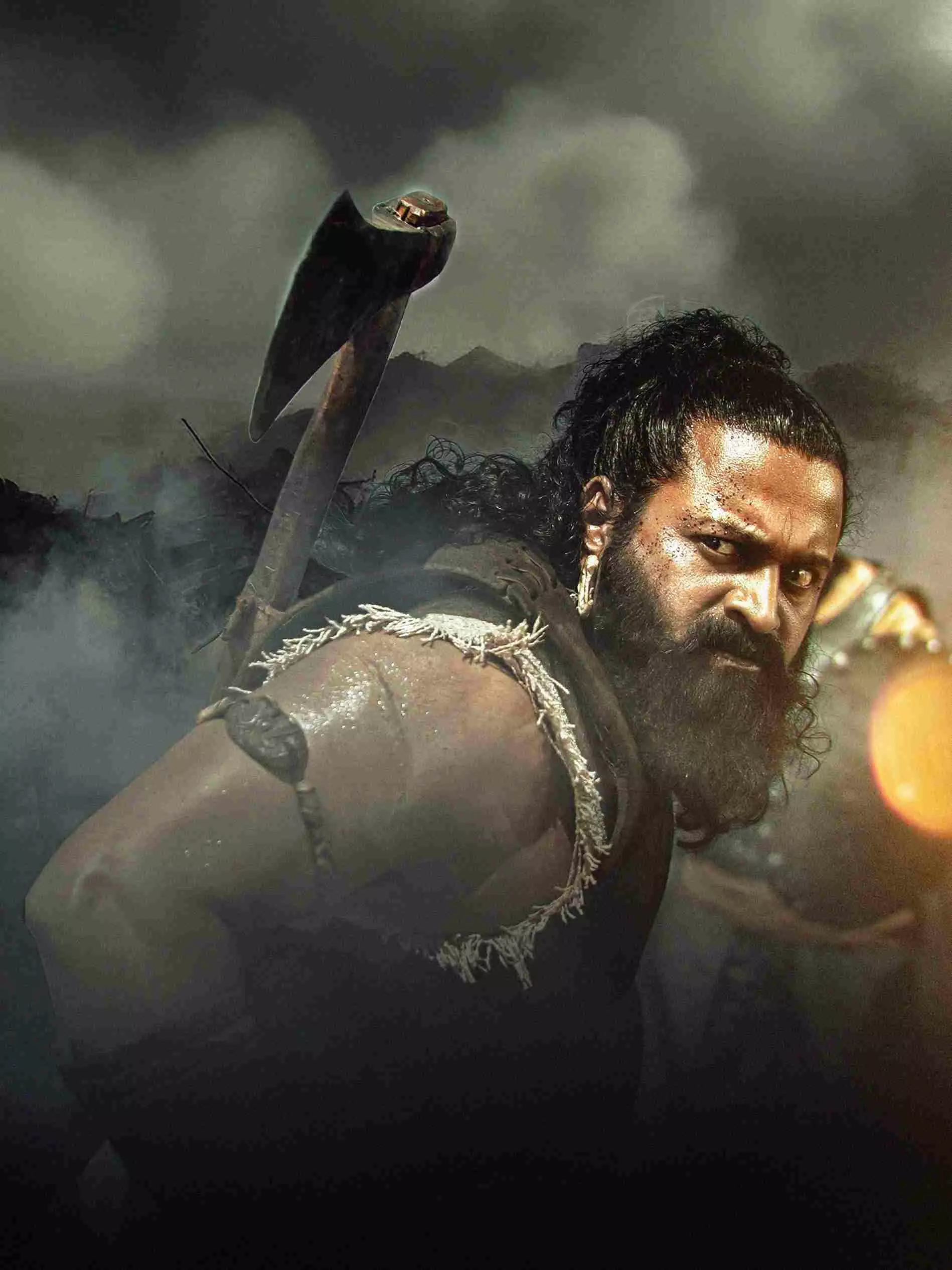
Actor-director Rishab Shetty delivers a tour-de-force performance, pouring his heart and soul into the role of Berme in Kantara: Chapter 1
Kantara Chapter 1 review: Prequel dazzles; a divine spectacle of faith and fury
Rishab Shetty’s prequel has spiritual depth, breathtaking visuals, and a soul-stirring performance from the actor-director that elevates the original's legacy

Kantara: Chapter 1, the eagerly-awaited prequel to the 2022 Kannada hit Kantara, transports audiences to a pre-colonial era, delivering a visually breathtaking and spiritually profound cinematic journey.
Directed by and starring Rishab Shetty, this film elevates the original’s legacy with grandiose action sequences, meticulously crafted sets, exceptional visual effects, and a profound spiritual undertone. Much like its predecessor, Kantara: Chapter 1 explores themes of oppression and divine intervention, with Lord Shiva at the heart of the narrative, championing the cause of the rise of the oppressed.
The story centers on Berme (Rishab Shetty), an ambitious young man from the Kantara tribe, whose homeland is revered as the sacred land of Lord Eshwar. When a king attempts to invade Kantara, divine forces intervene and the king dies. Years later, the king’s son, Vijayendra (Jayaram), establishes his own kingdom without venturing into Kantara that killed his father.
Dance of destruction
However, tensions reignite when Vijayendra’s impulsive son, Kulashekara (Gulshan Devaiah), seeks to get back his port from Kantara and is further provoked by Berme’s love for his sister, Kanakavathi (Rukmini Vasanth).
Also read: Kantara Chapter 1: Why Rishab Shetty embraced vegetarianism for some scenes in prequel
Rukmini Vasanth shines as Kanakavathi, exuding elegance while unveiling a surprising dimension to her character that promises to redefine her career.
As injustice threatens Kantara once more, Lord Shiva possesses Berme, unleashing the ferocious Rudhradhandav—a divine dance of destruction—that leads to Kulashekara’s downfall. Yet, this is merely the prelude to an epic battle between good and evil, culminating in an unexpected twist best experienced on the big screen.
Meticulous research
The film reflects meticulous research into the pre-colonial era, seamlessly weaving historical details—such as the arrival of Portuguese and Arabian traders and the acquisition of horses by Indian kings—into a fictionalised narrative tailored for a grand cinematic spectacle. The portrayal of various forms of Lord Shiva, skillfully adapted for the screen, adds a layer of spiritual depth to the storytelling.
Also read: How the crisis-ridden Kannada film industry is pinning its hopes on Kantara: Chapter 1
While the film takes time to establish its intricate world and introduce its characters, once the stage is set, the narrative surges forward with unrelenting momentum.
The action sequences are breathtaking, expertly choreographed, and enhanced by world-class visual effects, including stunning depictions of tigers and slender lorises. However, the inclusion of comedic sequences with a titillating tone, which was also seen in the original, feels clearly out of place and could have been omitted to maintain the film’s gravitas.
Grand performance
Rishab Shetty delivers a tour-de-force performance, pouring his heart and soul into the role of Berme. His portrayal of the divine theyyam dance and his relentless pursuit of enemies are mesmerising, making the film a must-watch on the big screen.
Rukmini Vasanth shines as Kanakavathi, exuding elegance while unveiling a surprising dimension to her character that promises to redefine her career. Gulshan Devaiah and Jayaram also leave a strong impression, with Devaiah’s intense portrayal of Kulashekara and Jayaram’s nuanced performance adding depth to the ensemble.
The film’s technical aspects are equally remarkable. Arvind S Kashyap’s cinematography vividly recreates the pre-colonial era, immersing audiences in its lush, untamed landscapes. Vinesh Bangalan’s production design complements this vision, crafting a believable and breathtaking world. Ajaneesh Loknath’s score is nothing short of divine, blending powerful and evocative compositions that elevate the film’s emotional and spiritual resonance.
While the second half occasionally feels protracted, the gripping climax—featuring an epic battle and a transcendent, divine resolution compensates for it.
Divine and arresting
Verdict: With Kantara: Chapter 1, Rishab Shetty surpasses the brilliance of the original Kantara, delivering a divine, arresting, and truly epic cinematic experience that demands to be witnessed on the grandest of screens.

